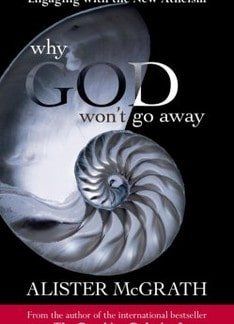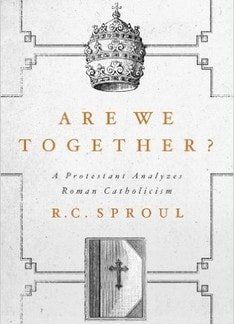In Why God Won’t Go Away McGrath provides an accessible introduction to the New Atheists and exposes the intellectual and moral bankruptcy of their position.
In his opening two chapters he introduces us to this latest manifestation of atheism and its main protagonists, namely Sam Harris, Richard Dawkins, Daniel Dennett and Christopher Hitchens, – ‘The Four Horsemen’. McGrath shows that New Atheism is actually defined by what it’s against rather than what it’s for, quoting from their writings, including the most ‘entertaining’ of them, Hitchens, who sums his position as ‘I am not even an atheist so much as I am an antitheist.’ McGrath exposes New Atheism as being characterised by its vitriolic attacks on religion and faith while ignoring research and evidence that doesn’t comfortably fit with its own beliefs. He depicts them, without being vitriolic himself, as arrogant and prejudiced rather than rational and respectful of other views. He is also careful to make a distinction between reputable, scholarly and thoughtful atheists who respect other views while differing from them, and are themselves critical of the tenets professed by Dawkins and the other ‘horsemen’.
In each of the next three chapters, McGrath examines three core themes of New Atheism and undermines the foundations on which they are built. The first of these is violence. New Atheism views religious belief as inherently evil which poisons societies, causing war and violence. However, as McGrath points out, they conveniently ignore that more wars have been started and more lives lost in the cause of ideology and politics than in the name of any religion. Admitting that ‘bad religion’ has often been at heart of troubles, he reasons that ‘any worldview based on an exclusivist metanarrative (a controlling story) has the potential to provoke hostility.’
The second core theme is reason, and yet McGrath competently shows how irrational and devoid of reason many of the New Atheist’s arguments are. Irrationally they fail to accept the limitations of reason and the fact that most things in the world cannot be proved by reason or science. New Atheists seek to blame God as the “hidden force” for atrocities like Auschwitz and 9/11 while maintaining that God does not actually exist and is a delusion.
The third core theme is science and here the New Atheists’ problem becomes acute because they dismiss any expression of faith as an avoidance of facts and claim that science has all the answers and can prove anything that needs proving, thereby flying in the face of all the evidence and history of scientific research which openly admits its limitations and accepts that there are many things that science cannot explain and questions for which it has no answers.
McGrath is never offensive or objectionable as he shows the emptiness of those whose false views he wants to expose, showing a grace largely absent from their writings and voices. If like me, these names and views were ‘out there’ and you were aware of them but not sure how to make sense of them, let McGrath be your reliable and readable guide and you will soon discover that in reality there is nothing here that is a serious threat to the revealed truth of the Christian faith.
John Brand
Edinburgh





















